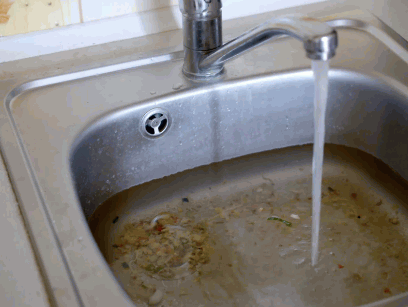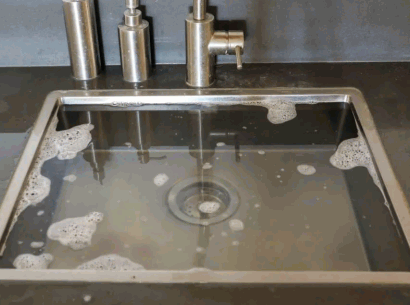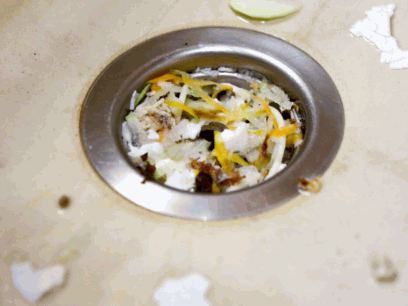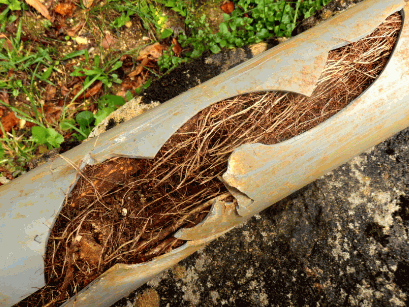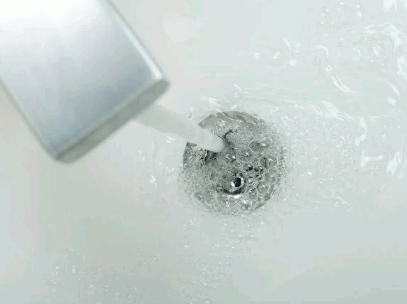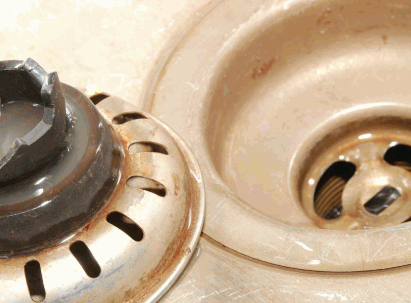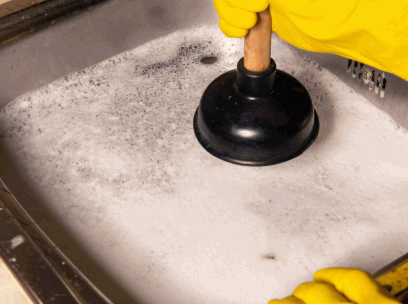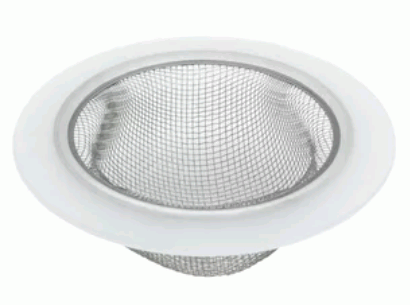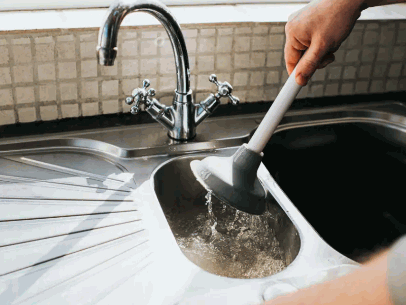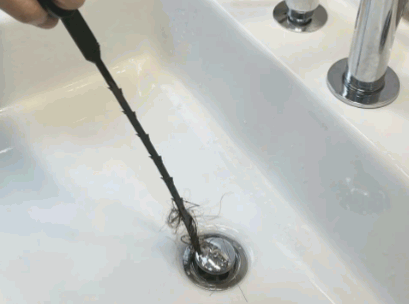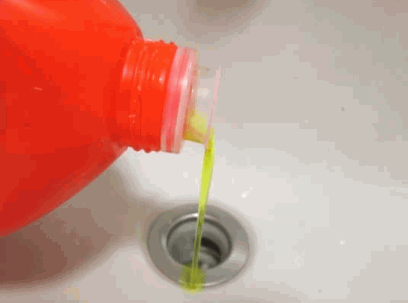Are you tired of dealing with constant drain blockages in your home? You're not alone. Clogged drains can be a major inconvenience and can often lead to expensive repairs. In this article, we'll explore the common causes of drain blockages and provide tips on how to prevent them. Don't let clogged drains disrupt your daily routine, read on to find out more.
What Is A Drain Blockage?
A drain blockage is when something obstructs the flow of water or waste through a drainage system. This obstruction can be caused by a variety of materials and substances, including grease, food particles, hair, soap scum, or foreign objects. Knowing what a drain blockage is and how it occurs is essential for identifying and resolving any problems within the plumbing system.
What Are The Common Causes Of Drain Blockage?
We rely on our drains to remove waste and keep our homes clean, but sometimes they can become clogged and cause major disruptions. In this section, we will discuss the common causes of drain blockage, including hair and soap scum buildup, food waste and grease, foreign objects, and even tree roots. By understanding these causes, we can take preventative measures to avoid clogged drains and keep our plumbing systems running smoothly.
1. Hair And Soap Scum Buildup
- To prevent hair and soap scum buildup in your drains, use a drain cover to catch any hair and keep it from going down the drain.
- Make sure to regularly clean the drain cover to remove any accumulated hair and soap scum.
- For deep cleaning, pour boiling water down the drain to dissolve soap scum and clear out any hair buildup.
- You can also use a mixture of baking soda and vinegar to effectively break down soap scum and hair clogs.
By regularly maintaining and being aware of what goes down your drain, you can prevent hair and soap scum buildup and ensure smooth drainage.
2. Food Waste And Grease
- Properly dispose of food waste by scraping plates and cookware into the trash before washing.
- Use sink strainers to catch food particles and grease, preventing them from entering the drain.
- Avoid pouring grease down the drain by storing it in a container to cool and solidify, then disposing of it in the trash.
- Regularly clean the drain to remove any accumulated food waste and grease.
3. Foreign Objects
- Avoid flushing foreign objects such as sanitary products, cotton swabs, or paper towels down the drain.
- Keep small objects like jewelry, bottle caps, and toys away from drains to prevent accidental slipping.
- Regularly inspect and clean drain stoppers to remove any foreign objects that may have accumulated.
- If there are young children in the household, make sure to keep small objects out of reach of drains.
4. Tree Roots
- Identify the issue: Keep an eye out for signs such as slow drainage, gurgling noises, or water backup that may indicate the intrusion of tree roots.
- Professional assessment: Bring in a plumber to thoroughly inspect and confirm the presence of tree roots.
- Root removal: Effective methods such as hydro-jetting or using a mechanical auger can be utilized to clear tree roots from the drain.
- Preventive measures: To avoid future root intrusions, consider implementing root barriers or scheduling regular maintenance.
What Are The Signs Of A Drain Blockage?
A blocked drain is a common household problem that can lead to inconvenience and even damage if left unchecked. But how can you tell if your drain is blocked? In this section, we will discuss the tell-tale signs of a drain blockage. From slow draining to foul smells to gurgling noises, these indicators can help you identify and address a potential blockage before it becomes a major issue. Let's dive into the signs of a drain blockage and learn how to recognize them.
1. Slow Draining
- Inspect the drain for any visible blockages or accumulation of hair that may be causing slow draining.
- Try using a plunger or a drain snake to clear the drain.
- If the above methods do not work, consider using chemical drain cleaners while following safety instructions.
- If slow draining continues to be a persistent issue, it is best to seek professional plumbing services to effectively diagnose and resolve the problem.
Pro-tip: To prevent slow draining, it is recommended to regularly flush drains with hot water to dissolve any grease or soap residue that may be causing the issue.
2. Foul Smells
- Check for any foul or unpleasant odors emanating from the drain.
- Identify the source of the foul smell, as it could indicate a potential blockage.
- If the foul smell persists, it's essential to further investigate the drain system to address any blockage issues.
- Contact a professional plumber if the source of the foul smell remains unidentified or if the blockage is severe.
3. Gurgling Noises
- Gurgling noises in drains are often a sign of trapped air bubbles in the pipes.
- It is important to inspect the vent pipe for any blockages and clear them out.
- If the gurgling persists, it may be necessary to seek a professional plumbing assessment to address any potential issues.
To mitigate gurgling noises, it is crucial to regularly maintain and carefully observe your drainage system to ensure it remains clear and functional.
4. Water Backup
- Inspect for Clogs: Check for any blockages in the drain system, especially if there is a water backup.
- Use a Plunger: Attempt to dislodge the clog by using a plunger in case of a water backup.
- Chemical Drain Cleaners: Consider using chemical drain cleaners cautiously to dissolve the blockage and prevent water backup.
- Professional Plumbing Services: If the clog persists and causes water backup, seek assistance from professional plumbers.
How To Prevent Drain Blockage?
Nobody wants to deal with a clogged drain, but it’s a common household problem that can be easily avoided with proper prevention. In this section, we will discuss some effective ways to prevent drain blockage. From regular cleaning and maintenance to proper waste disposal, these tips will help you keep your drains clear and flowing smoothly. We’ll also cover the use of drain screens and the importance of avoiding flushing inappropriate items down the drain. By implementing these preventative measures, you can save yourself the hassle and expense of dealing with a clogged drain in the future.
1. Regular Cleaning And Maintenance
- Make sure to regularly inspect and clean your drains to prevent buildup.
- Use a drain strainer to catch any debris or hair that may cause clogs.
- Flush your drains with hot water to dissolve any grease or soap residue.
- Consider using natural cleaning solutions, such as baking soda and vinegar, to keep your drains clean.
Pro-tip: To maintain clean drains, pour boiling water down the drain every week to dissolve any accumulated grease and soap scum.
2. Proper Disposal Of Waste
- Minimize grease and oil disposal to prevent drain blockage.
- Scrape food scraps into the trash instead of the sink.
- Dispose of coffee grounds in the garbage to avoid buildup in the drain.
- Use a sink strainer to catch food particles and prevent them from entering the drain.
3. Use Drain Screens
- Install drain screens in all sinks and tubs to effectively catch debris and prevent it from entering the drain.
- Be sure to regularly clean the drain screens to ensure they are able to trap debris and do not become clogged themselves.
- For even better results, consider using fine mesh drain screens to effectively trap even small particles and hair.
- Promptly replace any damaged or worn-out drain screens to maintain their functionality.
Make sure to add the use of drain screens to your regular home maintenance routine to keep your drains clog-free and functioning optimally.
4. Avoid Flushing Inappropriate Items
- Avoid flushing items like diapers, sanitary products, cotton balls, and paper towels to prevent blockages.
- Dispose of cooking oils and fats in the trash instead of pouring them down the drain.
- Keep hair catchers in the shower and sink drains to prevent hair clogs.
- Use a lint trap on your washing machine's drain hose to catch lint and prevent blockages.
Remember, a few simple practices can go a long way in preventing drain blockages and maintaining a healthy plumbing system.
What Are The Methods To Clear A Drain Blockage?
Facing a drain blockage can be a frustrating and inconvenient problem. But fear not, there are various methods to clear a drain blockage and restore proper drainage in your home. In this section, we will discuss the most common and effective methods for clearing a drain blockage. From using a simple plunger to calling in professional plumbing services, we'll explore the different options available and their potential effectiveness in solving this common household issue.
Find out more: How To Clean Drain Of Sink
1. Plunger
- Choose a plunger with a flange for a more effective seal.
- Fill the clogged drain with enough water to cover the rubber part of the plunger.
- Position the plunger over the drain and firmly push down to create pressure.
- Continue the plunging motion multiple times to dislodge the blockage.
2. Drain Snake
- Inspect the Drain: First, visually examine the drain to identify any visible blockage or debris.
- Prepare the Area: Clear the area around the drain and put on protective gear like gloves.
- Insert the Drain Snake: Carefully insert the drain snake into the drain and start turning the handle to break up and remove the blockage.
- Push and Pull: Use a combination of pushing and pulling motions to dislodge and extract the obstruction.
- Flush with Water: After clearing the blockage, flush the drain with hot water to ensure it's completely clear.
3. Chemical Drain Cleaners
- Before using chemical drain cleaners, be sure to carefully read the manufacturer's instructions.
- To avoid skin and eye irritation, it is important to wear protective gear such as gloves and safety goggles.
- Pour the recommended amount of the chemical drain cleaner into the drain and allow it to sit for the specified time.
- Once the designated time has passed, flush the drain with water to remove the cleaner and any debris.
If the blockage persists or if you prefer an environmentally friendly approach, consider consulting a professional plumber rather than using chemical drain cleaners.
4. Professional Plumbing Services
- Assessment: Professional plumbing services conduct a thorough assessment of any blockages using specialized tools.
- Advanced Equipment: They utilize advanced equipment, such as drain cameras, to identify the exact location and cause of the blockage.
- Effective Solutions: These services offer a range of solutions, from hydro-jetting to trenchless sewer repair, to effectively address the issue.
- Preventive Maintenance: After clearing the blockage, they provide guidance on preventive maintenance to avoid future problems.
In 2500 B.C., the ancient Minoans in Crete demonstrated their understanding of plumbing by creating elaborate underground drainage and sewer systems, showcasing the early civilization's advanced knowledge in this field.
